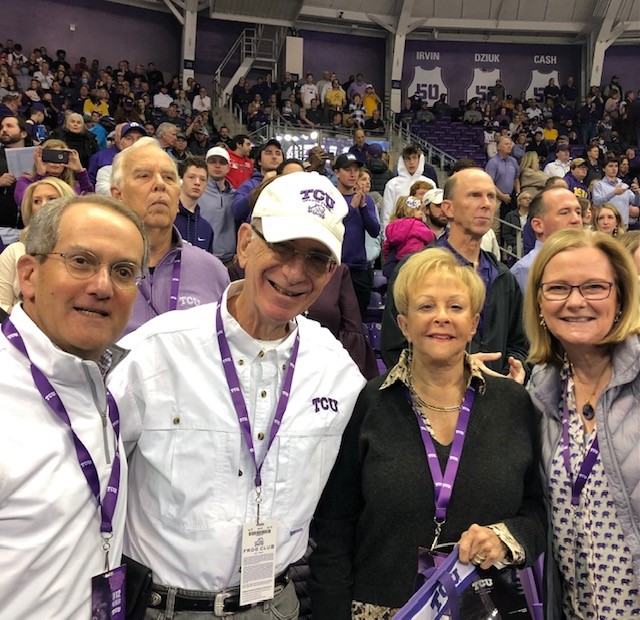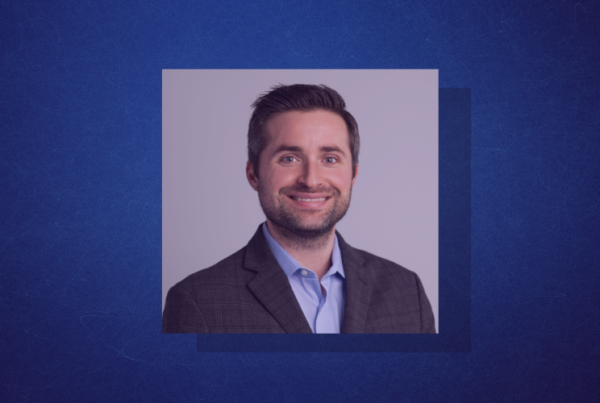Arnold Gachman is an all-around legend whether you’re talking about his work with ISRI, Texas Christian University (TCU), or within his hometown of Fort Worth, Texas. During a recent in-depth conversation with Scrap News, Gachman discussed his background, his career, and the passion he has for his community.
Tell us about your background and how you ended up working for your family’s recycling company.
I started working for the family company, Gachman Metals & Recycling, on a part-time basis in high school. I split my time between the recycling side and the steel distribution business. After graduating college, I began to work full-time predominantly for the recycling side of the business.
What have been some of the biggest challenges and rewards of working for a family-owned company?
The biggest challenge was dealing with family members from multiple generations, some of whom weren’t interested in recycling but were still owners. I effectively solved that by acquiring the business in a leverage buyout in 1985 and renamed the company Gamtex Industries.

The most rewarding part is being able to set your own familial destiny. They’re obviously there to support you, but they also want to be compensated fairly, which makes sense. You have to strike the right balance of maintaining the business and making sure everyone is happy, but it’s worth it.
What lessons did you take from your father, Leon, and grandfather, Jacob, that you’ve passed to your son, Iric, who is now president and CEO of the company?
I wanted him to understand that this is a commodity-based, cyclical business, with plenty of ups and downs. Be prepared for the downturns. Be responsible, watch your expenses, and maintain good relationships with your customers and employees. We’ve always had an open-door policy. If an employee had an issue, they could contact us, and we were there for them. We still have that policy today. Even if I’m not on site, employees can call me to talk about anything.
The average tenure of one of your employees is 12 to 15 years. How did you all create a company culture that makes people want to stick around?
We provide a safe work environment and culture. We promote a lot from within. We’re willing to teach, and we try to respect everyone’s abilities and place them in areas where they’re comfortable and able to grow. If someone has the ability to be a salesperson, we put them in sales. If they’re skilled in production, we put them in production. We try to get our employees to understand everyone else’s job and their role in helping the team, but we don’t try to cross lines where it’s not necessary. Sometimes people try to do too many jobs and it creates more disruption than benefits.
How were you introduced to ISRI, and can you tell me about your journey to become ISRI’s third president?
That’s a great story. I grew up in the business, so I attended my first Institute of Scrap Iron and Steel (ISIS) meeting as a child. I attended my first ISIS Gulf Coast Chapter [now Region] meeting in 1966 or 1967 after my grandfather encouraged me to get involved in our local chapter to meet new people. A year or so later, I attended my first ISIS national convention.
In 1969, the company lost two managers, which led me to becoming general manager. At the time, I didn’t have many industry relationships with other dealers in the region, so attending national meetings helped develop those relationships. I was intrigued by some of the important industry issues like the environmental challenges we were facing. I ran for chapter leadership roles, and after being elected, I climbed the ranks to chapter president. I attended Council of Chapter Presidents meetings and met many people on the national level. Eventually, some of those leaders identified me as a candidate for national leadership. I ran for secretary of the board, was elected, and climbed the ranks to become president in 1992.
What are some of your fondest ISRI memories and accomplishments?
I’ve been fortunate to receive some very prestigious awards such as ISRI’s Lifetime Achievement Award and the Gulf Coast Region’s Israel Proler award. Some of my fondest memories include being elected to national leadership and getting to work with Herschel Cutler [ISRI’s first executive director], ISRI President Robin Wiener, and my fellow officers.
I’m most proud of having the opportunity to know so many wonderful people. I have friends that are legends in this business that preceded me. And some friends are leaving their marks now. These relationships were all possible thanks to ISRI.
You’ve done a lot of work with your alma mater, TCU. What about your experience at TCU kept you involved over the years?
 TCU gave me a chance when I was a young man. I had a poor freshman year at the University of Texas at Austin, so I went to TCU for summer school. TCU gave me the opportunity to prove myself and turn things around. I also met the woman who would become my wife, Harriette, at a TCU/Louisiana State University (LSU) game, while she was attending LSU.
TCU gave me a chance when I was a young man. I had a poor freshman year at the University of Texas at Austin, so I went to TCU for summer school. TCU gave me the opportunity to prove myself and turn things around. I also met the woman who would become my wife, Harriette, at a TCU/Louisiana State University (LSU) game, while she was attending LSU.
There’s a lot of comradery at TCU, much like at ISRI. We were a smaller school at the time, with only 6,000 students or so. As the school and the city began to grow, the two became partners, and in many ways, TCU is a great reflection of Fort Worth.
One of my proudest accomplishments was being a founding donor of the TCU School of Medicine, Fort Worth’s first new medical school in nearly 50 years. TCU was, and still is, determined to provide accessible, high-caliber healthcare in our community. I’ve been happy to help them any way I could to accomplish this goal.
What sparked your desire to help provide accessible, high-caliber healthcare in Fort Worth?
A friend of mine serving on the board of directors at the Baylor Scott & White All Saints Medical Center asked me to help the medical center with an issue they were having. The medical center was extremely appreciative, so they asked me to serve on the board. As I started learning more about the medical center and healthcare in general, I became passionate about providing quality, patient-centered, accessible healthcare, and it’s something I’ve been passionate about ever since.
You’re a long-time champion for the equal treatment of all; what sparked this passion, and why has it remained so important?
Both my grandfathers were people who believed in people. We don’t look at a person’s color or beliefs. We look at their character, what they’re willing to do, how hard they’re willing to work, and their ethics. We’ve given people who have made mistakes in the past and had a tough time getting employment or advancing in their employment chances. My rule was simple: you can do whatever you want to do outside as long as you’re not a criminal, but when you come across these steps and punch in, you’re in a different country, you’re in our culture. And our culture is simple: do your job and make the most out of yourself and the opportunity. If you do that and work within the system, you’ll succeed. Everyone makes mistakes, but those mistakes don’t define a person. A person, in my opinion, is defined by how they learn and change from their mistakes.
When you’re not working or involved in community activities, what do you enjoy doing?
I love to travel with my family, I love cars, and I love going to meetings. I also love sports, specifically TCU sports. My family’s had season tickets for the football program since the 1930s. We’re supportive of them and all the other athletic programs.

All photos courtesy of Arnold Gachman.










